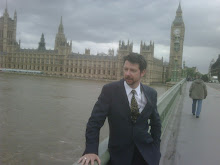For The Record 15/04/10
THE Facebook generation will be able to give an instant verdict on the historic party political leaders’ debate tomorrow night.
The social networking site has set up its own Democracy UK page will host a “dial test” that will allow users to vote, in real-time, on whether or not they like what the candidates are saying during the first of the live political TV debates.
The programme at 8.30pm on ITV1 on Thursday will be the first ever leaders’ debate in the UK in what has become the tightest general election campaign in a generation.
With opinion polls showing that no party would win an overall majority at Westminster the series of three debates over the next three weeks is seen as crucial.
Over half the population is expected to tune in to help them make their minds up for May 6.
ITN, which is hosting the first of three leaders’ debates, is to issue its own instant poll after the 90 minute clash finishes at 10pm.
The strict rules of the TV debate means that there can be no comment on screen during the broadcast. But ITV also plan to live videostream the debate online showing a focus group reaction tool that will rate audience approval.
The “worm” as the fluctuating line is known, will display approval disapproval or neutral feelings, as it crawls across the screen.
Party spin doctors and politicians will be online too, giving instant twitter comment on their opponents, in the hope of shaping the debate and the final verdict.
With millions of viewers now in the habit of watching TV with a computer on their lap or a i-phone in their hand Facebook is expecting a large number of users to be talking about the debate and engaging with its new tool.
The first of the debates will be about domestic policy, much of which is devolved to the Scottish parliament, but it is the personality of the leaders, and how they handle the gladiatorial arena, that people will be watching for.
But there are fears that a rigid format of the debates, with over 70 rules of engagement, could turn viewers off.
David Cameron attempted to play down expectations of himself by complaining yesterday that answering just eight questions over the 90-minute show could be “slow and sluggish”
On the campaign trail in south London, the Tory leader made a tacit admission of how high the stakes are. “I can’t pretend I’m not nervous,” he said.
But he added: “I do public meetings around the country. I’ve done 72 of these Cameron-direct public meetings and I try to get through 25 questions in an hour and I do worry that we may have ended up with a format that’s going to be a bit slow and sluggish. “
All three parties wrangled over how the head-to-heads would be conducted and have agreed a defined format but are now concerned the regulations could stifle the debate.
For each of the three primetime clashes, the first half of the show will be based on a specific theme and the second will feature questions on any issue.
Audiences will be picked to reflect support and questions are submitted in advance but party leaders will have no prior warning.
They will be able to open and close each debate with a prepared statement and have drawn lots to decide which order they will speak in. Lib Dem leader Nick Clegg will open the first debate which focuses on domestic affairs
All three leaders have already spent a large amount of time rehearsing for the event in Manchester.
Gordon Brown, who has looked more at ease as the campaign progresses, has been going through mock debates with Alastair Campbell, Blair’s old spin doctor, and Douglas Alexander playing the part of David Cameron. He said speaking to the public on the campaign trail was the best rehearsal.
Cameron, who is thought to go into the debates with the advantage of being a more fluid tv performer, has been jousting against his shadow cabinet members Damian Green (as Brown) and Jeremy Hunt playing Clegg.
Scot Michael Gove plays the ‘moderator’ for Cameron. Team Clegg has Chris Huhne playing Brown, David Laws plays Cameron.
Cameron will take the centre stage spot in the first debate. Clegg will appear on the left of the stage and Brown on the right, as the viewer sees it.
While the positioning of the three leaders may seem trivial it is seen as important by party insiders.
When Vince Cable appeared centre stage in the Chancellor’s Debates on Channel 4 recently, he was allowed to appear as an arbiter between the squabbling Darling and Osborne.
The Conservatives complained about that but for Cameron being “piggy-in-the-middle” runs the risk that the other two will gang up on him.
Clegg, who hopes his party’s chances will be turboboosted by the TV appearances, is understood to have been given the central spot for the second debate next week.
For the third debate on the economy, hosted by David Dimbleby a week before the election, Brown may not automatically get the centre spot which could be drawn by lots.
Subscribe to:
Post Comments (Atom)




I understand (via Adam Boulton) that Brown will stay on the right for all the debates because of his wonky eye.
ReplyDelete